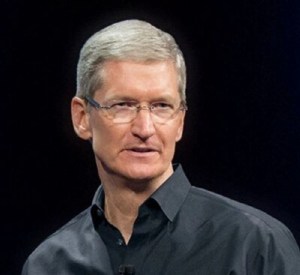The New Science of CEO Mastery: Why the Best Leaders Learn Faster and Embrace Discomfort
Insights from McKinsey’s landmark research on the world’s top-performing CEOs
Leonardo da Vinci proved it. McKinsey confirmed it. The leaders who win the future are the ones who stay endlessly curious, learn faster than their competitors, and reinvent themselves before the world forces them to.”
In one of the most comprehensive leadership studies ever conducted, McKinsey & Company’s CEO Practice—led by senior partners Kurt Strovink and Carolyn Dewar—analyzed the habits, mindsets, and operating systems of the most successful Fortune 500 CEOs.

Their findings, captured in the new book A CEO for All Seasons, reveal a powerful truth:
The best CEOs are not superhuman
They simply learn faster, adapt faster, and create purposeful discomfort.
.
.

This discovery matters now more than ever.
The modern CEO faces twice as many issues as just five to seven years ago, rising shareholder activism, collapsing tenures, and pressure that resembles private equity velocity.
Yet McKinsey found that the top 20% of CEOs create 30x more economic value than the rest.
How?
Not through perfection.
But through energy, curiosity, candor, and structured discomfort.

“You can focus on things that are barriers or you can focus on scaling the wall or redefining the problem.” — Tim Cook
Research Insight — What McKinsey Discovered
Across interviews with 200 top-performing CEOs, McKinsey identified one shared trait:
A pervasive “curiosity and learning mindset.”
Carolyn Dewar explains:
“It wasn’t that they were superhuman. They learned faster, adapted faster, and built structures to neutralize their excesses and amplify their strengths.”
— Carolyn Dewar, McKinsey CEO Practice
These CEOs:
-
Ask more questions than they answer
-
Seek contradiction, not validation
-
Invite uncomfortable truths
-
Build systems that counter complacency
-
Stay grounded in humility, even under pressure
This aligns with a universal pattern:
Great leaders are not the ones who know the most — but the ones who learn the fastest.

Leadership Translation — What This Means for Today’s Leaders
McKinsey’s research makes something undeniable:
Great CEOs are not calm geniuses.
Great CEOs are energetically self-regulated learners.
They build cultures where:
-
Candor is rewarded
-
Problems surface early
-
Teams challenge the leader openly
-
Discomfort is structured, not accidental
-
Failure becomes data, not shame
JPMorgan Chase CEO Jamie Dimon summarizes this perfectly:
“Don’t bring your best self — bring your worst self. Put the problems on the table.”
This isn’t negativity.
It’s radical transparency.
It’s the opposite of corporate politics.
Because you cannot fix what people are afraid to say.

“Smart people focus on the right things.” “Never stop asking questions and seeking answers. Curiosity fuels progress.” — Jensen Huang
One-Minute Activation — Apply the Research Today
Design for immediate, real-world transformation – A Single Focused Minute Can Rewire Your Leadership
1-Minute Leadership Reset
Step 1 — Ask the Discomfort Question
“What problem am I avoiding today?”
Step 2 — Neutralize the Ego
Write the worst-case outcome in one sentence.
This lowers emotional noise and increases clarity.
Step 3 — Invite Truth
Ask one person:
“Tell me what I’m not seeing.”
Step 4 — Regulate Energy
Take three slow breaths (4–2–4 pattern).
This increases neural integration and reduces reactivity.
Don’t forget 60 seconds of action beats 10 years of intention!
McKinsey’s research confirms what Leonardo da Vinci understood 500 years ago:
extraordinary leadership begins with extraordinary curiosity…
The CEOs who outperform the world are not the ones who know the most —
but the ones who learn the fastest, question the deepest, and reinvent themselves most often.
This is the essence of the Da Vinci Mindset:
a disciplined curiosity that transforms complexity into clarity and uncertainty into creative opportunity.
And today, Harvard University research reinforces the same truth:
individuals with a higher curiosity quotient achieve greater long-term success — both personally and professionally.

What I always say is, ‘Do every job you’re in like you’re going to do it for the rest of your life, and demonstrate that ownership of it.’ — Mary Barra
Global Positive Impact — Why This Research Matters for the World
When CEOs improve, societies improve.
Because every CEO decision influences:
-
thousands of employees
-
billions in economic value
-
supply chains affecting entire communities
-
innovation that shapes humanity’s future
A learning-oriented leader lifts the quality of life for millions.
An energy-regulated leader reduces fear and increases creativity.
A candid leader creates trust that cascades across systems.
McKinsey’s research shows that the future of leadership is not dominance —
it’s awareness, honesty, and continuous learning.

The best CEOs don’t avoid discomfort — they use it as fuel
These findings form part of the scientific foundation of the Max Energy Leadership System — where curiosity, candor, and energy alignment create leaders capable of transforming not only companies, but entire societies.
From Hillier Consulting — Strategic Insight
A leader’s real advantage is not knowledge, but learning speed.
Build a culture where truth is spoken early, problems surface fast, and learning becomes a daily rhythm. Today’s edge belongs not to the most informed — but to the most adaptable. — Hillier Consulting



